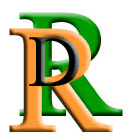
The Politics of Ivory Coast takes place in a framework of a presidential representative democratic republic, whereby the President of Ivory Coast is both head of state and head of government, and of a multi-party system. Executive power is exercised by the President and the Government. Legislative power is vested in both the government and parliament.

Robert Guéï was the military ruler of the Ivory Coast from 24 December 1999 to 26 October 2000.

Koudou Laurent Gbagbo is an Ivorian politician who was the President of Côte d'Ivoire from 2000 until his arrest in April 2011. A historian, Gbagbo was imprisoned in the early 1970s and again in the early 1990s, and he lived in exile in France during much of the 1980s as a result of his union activism. Gbagbo founded the Ivorian Popular Front (FPI) in 1982 and ran unsuccessfully for president against Félix Houphouët-Boigny at the start of multi-party politics in 1990. He won a seat in the National Assembly of Côte d'Ivoire in 1990.

The Democratic Party of Ivory Coast – African Democratic Rally is a centre-right political party in Ivory Coast.

Aimé Henri Konan Bédié is an Ivorian politician. He was President of Ivory Coast from 1993 to 1999. He is currently the President of the Democratic Party of Ivory Coast - African Democratic Rally (PDCI-RDA).

The Rally of the Republicans is a liberal party in Ivory Coast. The party is the country's governing party; the party's leader, Alassane Ouattara, is the current President of Ivory Coast.

The First Ivorian Civil War was a civil conflict in the Ivory Coast that began with a military rebellion on 19 September 2002 and ended with a peace agreement on 4 March 2007. The conflicted pitted the government of Ivorian President Laurent Gbagbo against a domestic insurgency led by the New Forces of Ivory Coast.

Alassane Dramane Ouattara is an Ivorian politician who has been President of Ivory Coast since 2010. An economist by profession, Ouattara worked for the International Monetary Fund (IMF) and the Central Bank of West African States, and he was the Prime Minister of Côte d'Ivoire from November 1990 to December 1993, appointed to that post by President Félix Houphouët-Boigny. Ouattara became the President of the Rally of the Republicans (RDR), an Ivorian political party, in 1999.

The Ivorian Party of Workers is a centre-left democratic socialist and social democratic, political party in Ivory Coast. It is led by Francis Wodié and was founded on April 8, 1990.
The word Ivoirité was first used by Henri Konan Bédié in 1995. It initially referred to the common cultural identity of all those living in Côte d'Ivoire, especially foreigners in Ivory Coast.

Romain Francis Wodié is an Ivorian politician. A professor and human rights activist, he led the Ivorian Workers' Party (PIT) from 1990 to 2011. During that time, Wodié served as a Deputy in the National Assembly of Côte d'Ivoire from 1990 to 1995 and as Minister of Higher Education from 1998 to 1999. He was President of the Constitutional Council of Côte d'Ivoire from 2011 to 2015.

Presidential elections were held in Ivory Coast in 2010. The first round was held on 31 October, and a second round, in which President Laurent Gbagbo faced opposition leader Alassane Ouattara, was held on 28 November 2010. Originally scheduled to be held in 2005, the vote was delayed several times due to the Ivorian Civil War and difficulties involved in the organization and preparation of the elections. A peace agreement between the government and the former rebel New Forces was signed on 4 March 2007, and in late April 2009, it was announced that the elections would be held by 6 December 2009, and that the date would be announced shortly. On 15 May 2009, the date was announced to be 29 November 2009. On 11 November, the elections were postponed again due to delays in the electoral roll. It was announced on 3 December 2009 to be held in late February or early March 2010.

The 1999 Ivorian coup d'état took place on 24 December 1999. It was the first coup d'état since the independence of Ivory Coast and led to the President Henri Konan Bédié being deposed.
The Constitutional Council is a judicial body in the government of Ivory Coast that is patterned after the Constitutional Council of France. The Council was created by law in 1994 and began its operations in 1995. The seat of the Council is in Abidjan.

A constitutional referendum was held in Ivory Coast on 30 October 2016. Voters were asked whether they approve of a proposed new constitution. The new constitution would create a Senate, remove the nationality clause from the presidential requirements and establish the post of Vice-President. The constitution was approved by 93.42% of votes with a 42.42% turnout, as announced by the president of the Independent Electoral Commission (CEI).

Presidential elections were held in Ivory Coast on 31 October 2020. Incumbent president Alassane Ouattara was re-elected with 95% of the vote amidst an opposition boycott.
Events in the year 2020 in Ivory Coast.

Kouadio Konan Bertin, known as KKB, is an Ivorian politician. He represented Port-Bouët in the National Assembly from 2011 to 2016.
This period in the history of Ivory Coast was affected by the end of the 33-year reign of Félix Houphouët-Boigny in 1993, as well as demographic change which had seen the Muslim population rise from 6% in 1922 to 38.6% in 1998, including a majority in the north of the country.

Parliamentary elections were held in Ivory Coast on 6 March 2021. The previous elections, held in 2016, saw the presidential coalition win more than the half the seats in the National Assembly.














